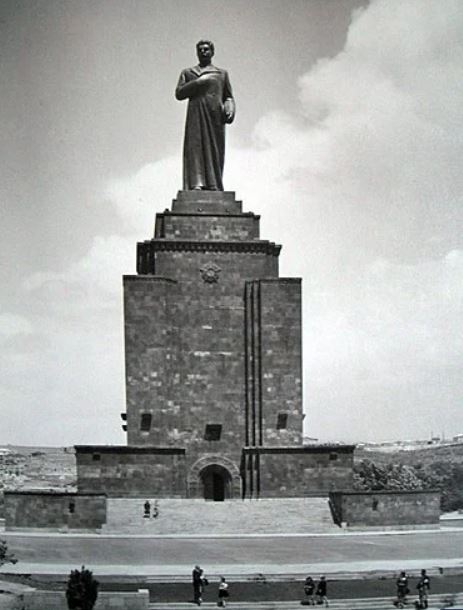There is a historical anecdote (or, who knows, maybe a real case). Stalin’s son, Vasily, fails in his service, and his father calls him to his office. “Do you think that if you are Stalin’s son, you can do anything?” – the Soviet dictator reprimanded and added, “Not even I can do anything I want to. Oh, but him,” he pointed to his own picture hanging on the wall, “he can do anything.” What is this story about? As soon as a picture of a living, acting leader is hung on the wall, he ceases to be a living person with all his flaws and limitations. He becomes his own statue, an icon that can only be worshiped. Have you ever seen an icon mistaken or criticized for questioning their actions?
The reader probably remembers the uproar of the opposition and civil society during Serzh Sargsyan’s rule, when officials hung a picture of the third president on the walls of their offices. It was rightly considered a manifestation of the cult of personality, greed, flattery, and North Korean culture. (I know that this is also accepted in some places in the West; I am talking about our perceptions as Armenians). And now when the officials decorate their walls with a picture of Nikol Pashinyan, what is the manifestation of that? The answer to that question was recently given by the Minister of Justice Karen Andreasyan. According to him, “When I look at Pashinyan’s photo during my work activity, I remember that I have to be honest and impartial.” In other words, Pashinyan’s picture has a guiding meaning for the minister. When he feels that he is going the wrong way, he looks at the picture, and the latter inspires him to act justly and honestly. Just as we Christians seek such a source of inspiration in the Bible.
I think if Pashinyan’s image really has such a cleansing effect, then we should not be limited to ministers. Pashinyan’s statue should be placed in the Monument instead of Mother Armenia, so that we, too, can look from down below and learn how to be impartial and honest. And most importantly, how to ensure the security of our own people. By the way, Stalin, whom I am naturally referring to and whose statue was erected in Yerevan in 1950, led his country to victory. Unlike some others.
…If I had to hang a picture in my office, I would hang up a picture of Plato. In 360 he wrote: “That’s why good people do not want to rule, neither for money nor for fame. They do not want to be called mercenaries, openly being rewarded for ruling, nor do they want to be declared thieves by secretly taking advantage of the rule. At the same time, they are not tempted by fame; are they not ambitious?”
Read also
Aram Abrahamyan























































